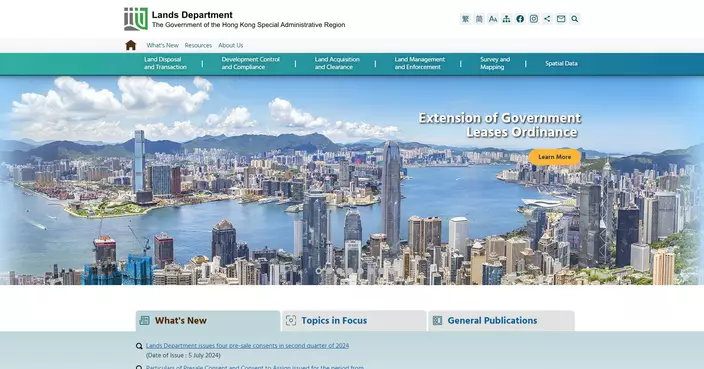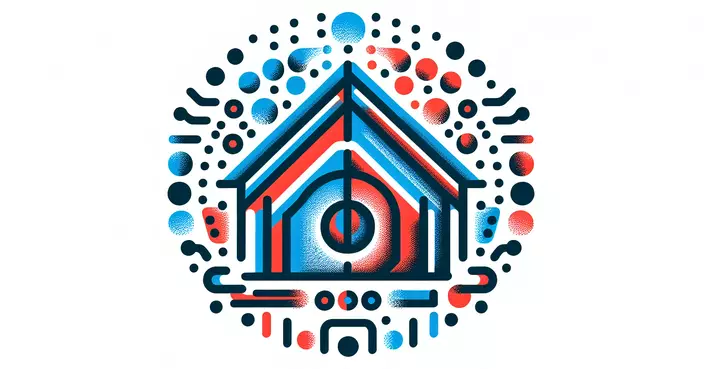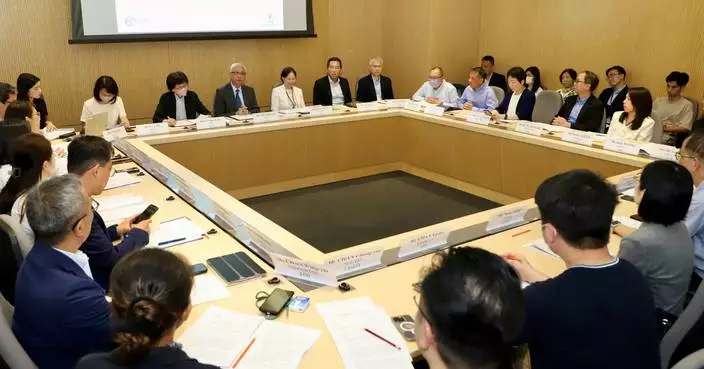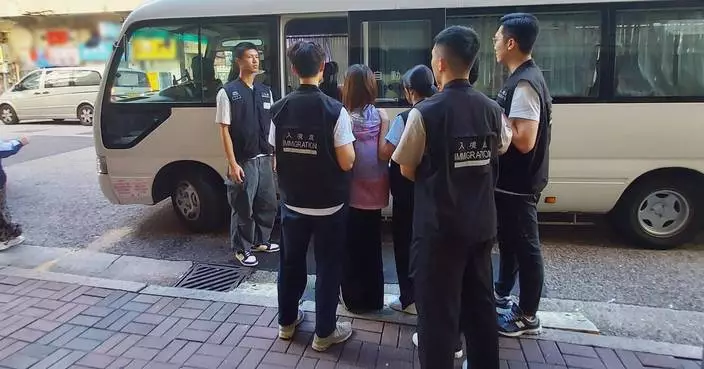Government promotes gerontechnology to enhance quality of life for elderly: initiatives include technology vouchers, r&d support, and service teams to assist hidden elders in using gerontechnology products.
Following is a question by the Hon Elizabeth Quat and a written reply by the Secretary for Labour and Welfare, Mr Chris Sun, in the Legislative Council today (July 3):
Question:
There are views that Hong Kong will become a "super-aged society" as defined by the World Health Organization, with the number and proportion of the elderly continuing to increase, and while the application of gerontechnology can effectively help the elderly to live more independently, healthily and comfortably, the Government should also endeavour to promote the use of gerontechnology among service providers and the elderly. To further promote gerontechnology and encourage the elderly to make good use of technology to enhance their quality of life, will the Government inform this Council:
(1) whether it will introduce elderly technology vouchers to provide subsidies for the elderly of grass-roots families to purchase gerontechnology products, digital devices or Internet services so that they can acquire technological products such as emergency alarm system, "AI home fall detection alarm devices", smart watches with tracking and health monitoring features, personal health dashboards to help them improve their lives and narrow the digital divide through new technology; if so, of the details; if not, the reasons for that;
(2) as it has been reported that local start-ups and small and medium enterprises often encounter difficulties such as insufficient funds, lack of promotion platforms and manpower shortage in the research and development (R&D) as well as promotion of gerontechnology products, of the measures the Government has put in place to support and drive these enterprises in the R&D and promotion of gerontechnology products;
(3) as the Jockey Club "age at home" Gerontech Education and Rental Service funded by The Hong Kong Jockey Club Charities Trust is a four-and-a-half-year pilot scheme providing one-stop gerontechnology services to the elderly, including education service, rental service together with cleaning and maintenance services, whether the Government will consider, by drawing reference from the model of the scheme, launching a similar pilot scheme in housing courts with a high elderly population, so as to build up the confidence and capability of ageing in place among the elderly and their carers; and
(4) of the measures put in place to assist hidden elders in using gerontechnology products and carry out the relevant promotion; whether it will study the establishment of gerontechnology service teams and commissioners in all 18 districts across the territory and complement the work of the District Services and Community Care Teams, so as to reach out to the community to assist hidden elders in choosing, purchasing/renting and applying gerontechnology products?
Reply:
President,
The Government has been encouraging elderly persons to make better use of gerontechnology, enhancing digital trainings for them, improving their quality of life, and relieving the burden of their carers.
In consultation with the Innovation, Technology and Industry Bureau, the Social Welfare Department (SWD) and the Housing Department, I reply to the Member's question as follows:
(1) and (3) The Government allocated $1billion in 2018 to set up the Innovation and Technology Fund for Application in Elderly and Rehabilitation Care (I&T Fund), which subsidises eligible elderly and rehabilitation service units to procure, rent or trial technology products, including sensor systems which can detect a frail elderly person who has left his/her bed and monitor the risk of him/her falling or encountering accidents, wearable sensors which can measure biological signs such as heart rhythm and blood pressure, body composition analysers which can measure health parameters, intelligent anti-wandering systems which can be integrated with indoor positioning and wireless gate sensor. As at June 2024, the I&T Fund has approved grants totalling about $750million, subsidising about 2000 service units to procure or rent over 21000 technology products.
The 2023 Policy Address announced that the Government would inject additional $1billion into the I&T Fund in 2024-25 and expand its scope to cover gerontechnology products suitable for household use. Eligible service units can procure suitable technology products for lending to elderly persons and carers for use at home. In addition, the SWD has expanded the coverage of the Community Care Service Voucher for the Elderly to the rental of assistive technology products since September 2023. These two measures can extend the application of gerontechnology from residential care homes (RCHs)/community service units to elderly persons' residence.
The Government launches different measures to assist elderly persons in need to install indoor emergency alarm systems (EAS) such that they may call for help promptly during emergencies. The SWD launched the District Services and Community Care Teams - Pilot Scheme on Supporting Elderly and Carers in March 2024, which would refer needy elderly persons, persons with disabilities and their carers to install and use EAS. The Hong Kong Housing Authority (HA) and the Hong Kong Housing Society (HKHS) have been providing subsidies to eligible elderly households residing in their housing estates to install and use EAS since 1996 and 1997 respectively. The HA and the HKHS have expanded the coverage of the subsidies concerned to mobile/wireless EAS since February 2021 and January 2020 respectively. In addition, the SWD provides similar subsidies to eligible elderly persons receiving Comprehensive Social Security Assistance.
Jockey Club "age at home"Gerontech Education and Rental Service is funded by The Hong Kong Jockey Club Charities Trust, administered by The Hong Kong Council of Social Service and operated by three social welfare organisations. The Government welcomes non-governmental organisations in launching this kind of pilot scheme which provides education, rental as well as cleaning and maintenance services related to gerontechnology products, and will keep in view the implementation effectiveness of and stakeholders' feedback to such services.
(2) Eligible elderly and rehabilitation service units can apply for the I&T Fund and partner with technology research and development (R&D) companies to trial their newly developed technology products designed specifically for the nursing and rehabilitation needs of elderly persons or persons with disabilities. The ceiling for the relevant grant is $5million per application.
The annual Gerontech and Innovation Expo cum Summit (GIES) promotes the use of technology by all sectors to address the challenges brought about by an ageing population and the rehabilitation needs of persons with disabilities. Since its launch in 2017, the event has attached over 1000 exhibitors to showcase more than 3500 gerontechnology products and application solutions from both Hong Kong and other places around the world, attracting over 230000 visitors. The GIES comprises forums/thematic talks and workshops, which serve as a platform drawing together stakeholders from Hong Kong, the Mainland and abroad, including representatives of the innovation and technology sector, the academia, the social welfare sector and technology product users, to engage in dialogue and collaboration for broader adoption of gerontechnology. The GIES also provides a platform for businesses to exhibit the inventions and design concepts of gerontechnology products, allowing the public to get close to and learn about gerontechnology products and solutions as well as driving the public and different sectors to actively adopt gerontechnology and promote the industrialisation, marketisation and popularisation of gerontechnology.
The Innovation and Technology Commission (ITC) endeavours to promote and support applied R&D activities which can contribute to exploitation of innovative ideas as well as upgrading of technology levels by industries. Through funding schemes under the Innovation and Technology Fund (ITF), the ITC subsidises and encourages universities, local public R&D institutes (such as R&D Centres), and private enterprises to conduct R&D in various technology areas (including gerontechnology), and conduct trials on the R&D results in the public sector, including over 70 projects that involve gerontechnology, with a total approved funding of over $250 million. The Research Talent Hub under the ITF also provides funding support for technology companies conducting or planning to conduct R&D activities in Hong Kong to engage research talents to carry out R&D work.
In addition, the Social Innovation and Entrepreneurship Development Fund funded the establishment of the Gerontechnology Platform in 2021 to promote the development and application of gerontechnology by way of promoting engagement, cross-sector partnership and collaboration. The Platform has provided start-ups and small and medium enterprises with over 1800 support and consultancy services on the design or development of gerontechnology products to date. It also completed the testing of 10 theme-based gerontechnology products in RCHs in end 2023, including fall prevention, companion robot, health monitoring, transferring and lifting, infection control, anti-wandering, communication, care food, smart environment and cognitive training. With reference to the experience of product testing, the Platform and industry partners have jointly developed the Gerontechnology Product Evaluation Frameworks, covering the essential elements, workflow, reference test plan, etc, of gerontechnology product evaluation, for reference and adoption by the sector. This allows product developers to understand user requirements for different types of gerontechnology products, and improve the products' functionalities based on users' feedback.
(4) The SWD has expanded the service scope of all 214 subvented elderly centres in the territory to the promotion of gerontechnology since October 2023, in order to drive the application of gerontechnology in the community. Elderly centres organise different activities such as seminars and workshops to promote digital technology, so as to keep the elderly abreast of the latest technological developments, and enable them to access and learn to use technology products, such as smart phones, tablets and applications. Elderly centres will also provide support to their members when they encounter difficulties in using digital technology. In addition, Support Teams for the Elderly set up under District Elderly Community Centres identify hidden elderly and other elderly persons with potential service needs through outreaching and networking, and provide suitable assistance to them, including assisting them in using technology products.
Meanwhile, the Office of the Government Chief Information Officer has also launched the ICT Outreach Programme for the Elderly across different districts in the territory, organising various activities for the elderly to experience digital living. Service organisations have incorporated gerontechnology elements into their activities, such as providing cognitive training and functional strengthening activities for the elderly through motion sensing games and gerontechnology products, so that they can experience the benefits of digital technology to daily life.

Source: AI-generated images










